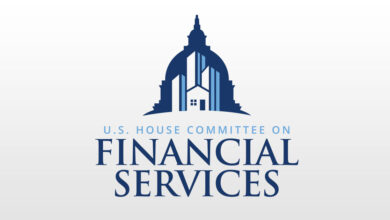Australian Treasury Proposes Stricter Regulations for Crypto Exchanges

The Australian federal government is charging forward with plans to regulate the digital asset sector at the exchange level, and may soon require cryptocurrency exchanges to hold a financial services license issued by the local financial regulator. The Treasury unveiled a proposal aimed at imposing stricter regulations on cryptocurrency trading platforms, with a focus on enhancing oversight of customer funds.
In the newly-unveiled “Regulating digital asset platforms” consultation paper, released on October 16, the Australian Treasury said that the new regulatory framework aims to address consumer harms while still supporting innovation in the digital asset sector.
The core theme of the new regulatory framework is that it aims to regulate cryptocurrency exchanges and service providers instead of individual cryptocurrencies or tokens themselves. Additionally, the consultation paper explained that it will regulate crypto exchanges under pre-existing financial services laws, instead of crafting new crypto-specific rules.
The proposed new rules will see any crypto exchange holding more than $3.2 million, or more than $946 per individual, required to obtain a licence from the Australian Securities and Investment Commission (ASIC). The proposal has seen a mixed reaction from crypto exchanges operating in Australia.
Australian crypto exchange Swyftx’s general counsel, Adam Percy, called the proposal “thoughtful” and agreed that “the primary focus should be to make sure cryptocurrency users can access blockchain technology with appropriate protections and that there’s room for innovation.”
Jonathon Miller, the Director of Kraken Australia, however, expressed his disappointment at the latest developments, saying that the consultation paper was essentially “shoehorning” crypto in existing financial services regulation.
“Australia is now in the unfortunate situation where our regulation has taken a very long time, so we’re taking the approach of shoehorning crypto into existing financial services regulation,” Miller said. “We’re behind our global peers when it comes to implementing a crypto framework, so I appreciate the need to have something in place locally to provide certainty to platforms like ours.”
“I’m hopeful that we can work collaboratively with the Government to make sure we don’t snuff out the benefits of future innovations in crypto that might fall outside the conventional ‘financial services’ box.
Liam Hennessy, partner at international law firm Clyde & Co, said that while it’s clear that the Treasury is still “grappling” with all of the different types of tokens and services providers, it’s crucial to remember that all new proposals set out in the consultation paper are still only suggestions, and are not legally binding recommendations.
“Whatever the Treasury suggests, it is just that – a suggestion only. The Australian Government is not bound to follow its recommendations, and there will be lobbying once the consultation paper comes out.” Hennessy said that the consultation paper arguably doesn’t address the more pressing issues facing the crypto industry in Australia, like issues such as the recent slew of de-banking.
“Many licensed digital assets exchanges, both domestic and international, are struggling to find adequate banking arrangements,” said Hennessy.
Notably, the Australian Treasury outlined that the entire point of the consultation paper is to “seek feedback” on the many questions and regulations proposed within it and advised that any feedback may be submitted by December 1, 2023.





